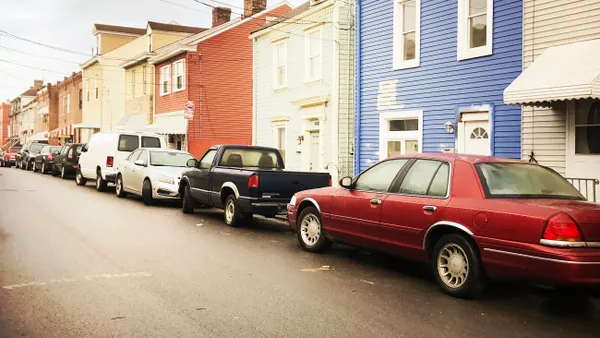Dive Brief:
- The Chicago Police Department has expanded its smart policing strategies, including predictive technologies, to more of the city's districts. The city credits the technology and its push to hire more officers with contributing to a 28% reduction in shootings compared with last year.
- The department has set up another "Strategic Decision Support Center" to provide technological resources such as criminal databases, expanded use of surveillance cameras that record activity in areas at high risk of crime and the gunshot detection system ShotSpotter. Officers in the area will also be provided mobile phones with crime analysis tools to promote data-driven patrols that can determine better deployment strategies and reduce response time.
- Each Strategic Decision Support Center will have a civilian data analyst from the University of Chicago who collects and analyzes gathered data. The data analyst partners with a district intelligence officer to coordinate with patrols in the field and send them useful information to improve their policing.
Dive Insight:
Chicago has gotten a bad rap for gun violence recently, with 2016 to 2017 racking up its worst violence in almost 20 years. But shootings are on a downward trend in the city, with February coming in as the 12th consecutive month of gun violence reductions.
Crime is complex, and identifying definite causation for spikes and dips isn't exactly easy. Social and economic factors play a role, as do city governments' and police departments' efforts to curb crime.
Chicago's police force has undertaken deliberate changes in strategy and upgrades in resources to turn around the gun violence trend, especially in areas hardest hit by crime. The technology aids the department in coming up with more effective strategies that can have a greater impact on crime reduction. Equipping patrol officers and neighborhood stations with better technology is a big part of that. It can increase the speed with which officers respond to a situation, which increases likelihood of apprehending criminals, in addition to predicting where trouble is most likely to arise. The innovations also can help keep officers safer on duty, which is a subject particularly on the minds of Chicagoans after a commander was shot and killed downtown last month.
Positioning a civilian data analyst at the strategic decision support centers is an interesting twist on policing. It shows a willingness to collaborate with community partners who have more expertise in certain innovative areas to create better overall services for the city's residents.











